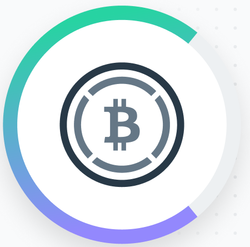
This article is an on-site version of our Unhedged newsletter. Sign up here to get the newsletter sent straight to your inbox every weekday
Good morning. Ethan here; Rob’s enjoying a hard-won vacation. For anyone who missed last Friday’s letter, Unhedged is on a lighter schedule this week — we’ll be back Friday.
The news coming out of Ukraine is immensely scary. As I’m writing, Russian troops are in Ukraine, but we don’t know if they are yet on soil controlled by the Ukrainian government. The US says it’s committed to diplomacy “until the tanks roll”. We are living through history, and it is terrifying. I hope any readers in the region are safe.
US markets were on holiday yesterday, and S&P futures are pricing a sharp drop this morning after European stocks sold off. It’s hard to care about what stocks are doing, but it’s what they pay us to do, so onwards.
Email me: ethan.wu@ft.com.
The value rotation is on pause in the US, but not in Europe
It feels distant now, but just last month the high market drama was the rotation to value. One exaggerated headline in a major publication hailed it as the biggest since 1995. Since then, though, markets have had bigger problems. An indeterminately hawkish Federal Reserve and Russia-Ukraine tensions are keeping everyone on edge.
It’s not so surprising, then, that the US value rotation has taken a breather. Assets held in large-cap value ETFs have grown a brisk 4.3 per cent year-to-date, but that has recently slowed to a trickle, according to Jefferies data. Since late January, the Russell 1000 growth and value indices have traded close together:
The most immediate backdrop is the growing appetite for safety. Gold is beating just about everything else. The latest Bank of America fund manager survey found the highest share of cash holdings since May 2020. Perhaps investor anxiety has put the value rotation on ice?
That story is harder to see in European equities, where the pivot to value is chugging along. Despite some wobbles in the last few days, European value continues to outperform growth:

When we last discussed it in January, US value was still outperforming growth, just at a slower clip than Eurovalue. At the time, Schroders research head Duncan Lamont gave us two possible explanations:
A month later, the first point looks bang on. In absolute terms, energy stocks in the S&P 500 value index beat their counterparts in the MSCI Europe value index this year. But in weighted terms, European energy’s contribution margin to the Europe value index was 47 basis points higher than the US energy equivalent. The story is broadly similar for financials.
The second point is harder to judge, as valuation data is published less frequently. Bloomberg estimates show Europe’s valuation gap — the difference in forward P/E ratios between growth and value indices — shrinking since late 2021, though this is subject to sharp quarterly revisions.
It’s early, but the value rotation in Europe looks firmer than in America. Which is not to say that the US rotation is doomed, but that more needs to go right. In Europe strong bank and energy stocks, set to gain from rising rates and oil, can do the heavy lifting, whereas other US sectors will need to pitch in. We’ll keep an eye on this.
Bitcoin money laundering: bug or feature?
Bitcoin has a problem. It is not terribly useful for things like generating yield. It’s also a bad payment method, assuming your goal is to make fast payments with low fees and low price risk. Newer bitcoiners mostly mutter something about “digital gold” and move on.
But bitcoin is half-decent at one thing: money transfers that don’t need official approval. This is not necessarily bad. During the worst of this year’s lira volatility, some Turks turned to crypto, which they saw as no less volatile than the official currency.
The issue, from a bitcoiner’s perspective, is that it isn’t the only game in town. Something similar happened in Myanmar in December, where anti-junta rebels used the stablecoin tether to transact. And then there are the privacy coins, as the FT’s Gary Silverman laid out in a recent column:
[Some in crypto are] working today to thwart the enforcement of anti-money-laundering laws through the creation of so-called privacy coins — cryptocurrencies designed to be difficult to track or trace.
The threat posed by privacy coins can be gleaned from the fine print of a federal criminal complaint filed this month, which accuses a New York couple of laundering proceeds from the August 2016 hack of the Bitfinex exchange that netted bitcoin worth $4.5bn at the time the government acted. Among the techniques they allegedly used was converting some of the bitcoin into “anonymity-enhanced virtual currency”, the filing says, the most notable example being a privacy coin called Monero.
Privacy coins such as Monero and Zcash use complex cryptography to obscure the identities of people trading them. In contrast, bitcoin traders are identified by public addresses, which are theoretically anonymous but often can be traced in practice. That is exactly what happened in the federal probe Silverman mentions.
So bitcoin is pinched. It’s not a great option for privacy hawks (to describe them generously), nor is it all that intrinsically useful. Its clout comes from a first-mover advantage and a loyal fan base, not any purported features of digital gold. But what moats will stave off the crypto competition in the long run?
Some bitcoin diehards want the cryptocurrency to pivot to privacy. Here’s Human Rights Foundation exec Alex Gladstein speaking to Bloomberg’s Joe Weisenthal last week:
Gladstein thinks it’s a mistake for bitcoiners to accept the premise that it’s not good for money laundering. As he puts it, “It has to be good for money laundering if it’s going to be freedom money.”
As he put it, there was an understanding from the very beginning that bitcoin didn’t have great privacy, and that it was a purposeful trade-off at the start …
According to Gladstein, privacy tech is advancing all the time within the bitcoin ecosystem. There are things like Coinjoin, where people can combine their bitcoins, such that it’s difficult to see who has control of what.
Gladstein’s vision is of a bitcoin that looks more like Monero than ethereum, where its purpose is challenging state control. But as crypto has expanded beyond bitcoin, this “freedom money” view has lost ground to one that wants widespread adoption. Regulated, centralised exchanges such as Coinbase and FTX, for instance, want trading volume and a regulatory truce.
Izabella Kaminska, who has just left the FT for her brand-new The Blind Spot, thinks a little monetary competition isn’t so bad:
Crypto is a terrible system. And I would seriously rather not operate via its channels. But with great centralisation comes great authority, and having a pesky challenger in the mix is probably a good thing. It keeps the core system honest. It’s the reason we have a shadow government in politics too. A challenger system keeps things in balance, and prevents the forces of corruption taking root in the core system. The best scenario is one where bitcoin is there as an option but very rarely used.
Kaminska elaborates in a separate blog post that many democracies’ core systems are not so honest, too often passing clunky anti-money laundering laws that don’t stop corruption and that can be used against domestic political opposition.
This is a strong argument in a debate I won’t resolve. What we are talking about is knowingly creating a gift for organised crime so that dissidents across the world can better resist state power. Maybe, on balance, that’s a good thing for humanity. But if I were an institutional money manager with a bitcoin allocation, I might just be a tad alarmed that the leading theory for its long-term moat is embracing the shadows.
One good read
An insightful blog post on the nature of risk, complete with up-to-date data, from NYU’s Aswath Damodaran.
Recommended newsletters for you
Due Diligence — Top stories from the world of corporate finance. Sign up here
Swamp Notes — Expert insight on the intersection of money and power in US politics. Sign up here














































































Be the first to comment